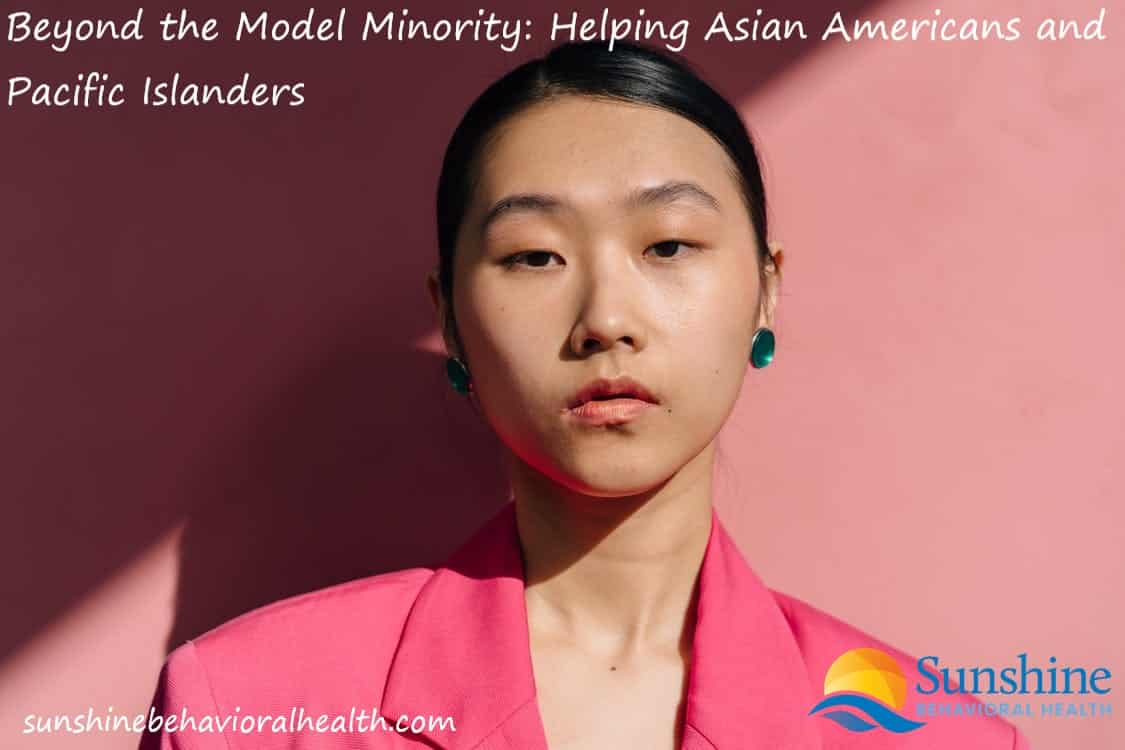
Beyond the Model Minority: How We Can Help Asian Americans and Pacific Islanders Battle Stigmas and Addiction
Stereotypes exist everywhere and can pertain to gender, race, and social status, as well as mental health or substance abuse concerns. Sometimes dubbed a model minority, Asian Americans and Pacific Islander often shy away from finding the help they need. What are some ways they can battle the stigma and receive addiction and mental health care?
Different stereotypes about race have long plagued America. People have biases regarding forming relationships, interacting in the workplace, or dealing with others.
A complex perception surrounding the Asian American and Pacific Islander (AAPI) community is known as the model minority stereotype. Many people view the AAPI community as hardworking, law-abiding, and generally “good” citizens.
Although this view can be flattering, it can also be a curse for the community since they can appear invincible, a group that doesn’t face trouble or need help. But if they do need help, they might hesitate to find the mental health and substance abuse assistance they desperately need.
During Asian American and Pacific Islander Heritage Month, we celebrate the AAPI community. What are some ways we can raise awareness about the community and its concerns while helping its members find assistance?
Lay a foundation for open communication
It’s vital to keep the communication lines open to talk about mental health and substance abuse problems and other concerns.
While attitudes are changing to some extent, some members of the Asian American and Pacific Islander (AAPI) community think that discussing certain topics is taboo. People have been worried about saving face, or protecting the reputations of themselves and their families. But avoiding discussions and keeping our feelings to ourselves can be detrimental to our mental and physical health.
To encourage open communication, be sensitive with your language, and do not dismiss people when they’re struggling. Dismissing or belittling people’s problems can make them secretive about what they’re experiencing and make communication difficult, if not impossible.
Remind people that you’re available to listen, that you won’t make any judgments, and that you’re ready to help whenever they need it.
Let your thoughtfulness shine
Members of the AAPI community are also recognized as hardworking people. If they excel, people might think that they don’t need assistance, but this isn’t always the case. Since reputation and honor are important to many of their cultures, people may be struggling internally without anyone knowing it.
Set aside your preconceived notions and biases and demonstrate thoughtfulness to your AAPI loved ones once. Little acts of kindness, such as sending cards or gifts, or striking up a conversation to ask them about their lives, can help them open up and let them know that they have someone to lean on when times get rough.
Many individuals in the AAPI community continuously serve others, leaving little for themselves. A little thoughtfulness can help restore them, demonstrating that they don’t always have to appear strong and that they can seek help from others.
Point them to the right resources
If an AAPI loved one does admit they have mental health and substance abuse problems, you can point them to the right resources. For example, you can provide information on addiction treatment centers and programs or supportive online communities to help them receive the services they need.
Make sure that these resources are respectful and mindful of the AAPI community’s needs and recognize the unique struggles that these individuals are facing. In the same way, being aware of such struggles also allows you to stay informed about the resources your loved ones need if you see signs of mental health and addiction struggles.
Celebrating Asian American and Pacific Islander heritage: Understanding and offering support
People of all backgrounds should be celebrated for their unique qualities. This AAPI Heritage Month, may you reach out to the individuals of the community by lending a listening ear and pointing them to resources that can help.
Sources
sunshinebehavioralhealth.com – Mental Health Issues Facing the Asian American Community
aps.edu – Asian American and Pacific Islander Heritage Month
news.jrn.msu.edu – Bias Busters: Cultural Competence Guides – Saving Face: What Does It Mean?
thriveglobal.com – How to Encourage Open Communication in Your Family | Gregg Jaclin
nationaldaycalendar.com – 7 Thoughtful Ways to Brighten Someone’s Day
A Message From Our CEO
Medical disclaimer:
Sunshine Behavioral Health strives to help people who are facing substance abuse, addiction, mental health disorders, or a combination of these conditions. It does this by providing compassionate care and evidence-based content that addresses health, treatment, and recovery.
Licensed medical professionals review material we publish on our site. The material is not a substitute for qualified medical diagnoses, treatment, or advice. It should not be used to replace the suggestions of your personal physician or other health care professionals.






